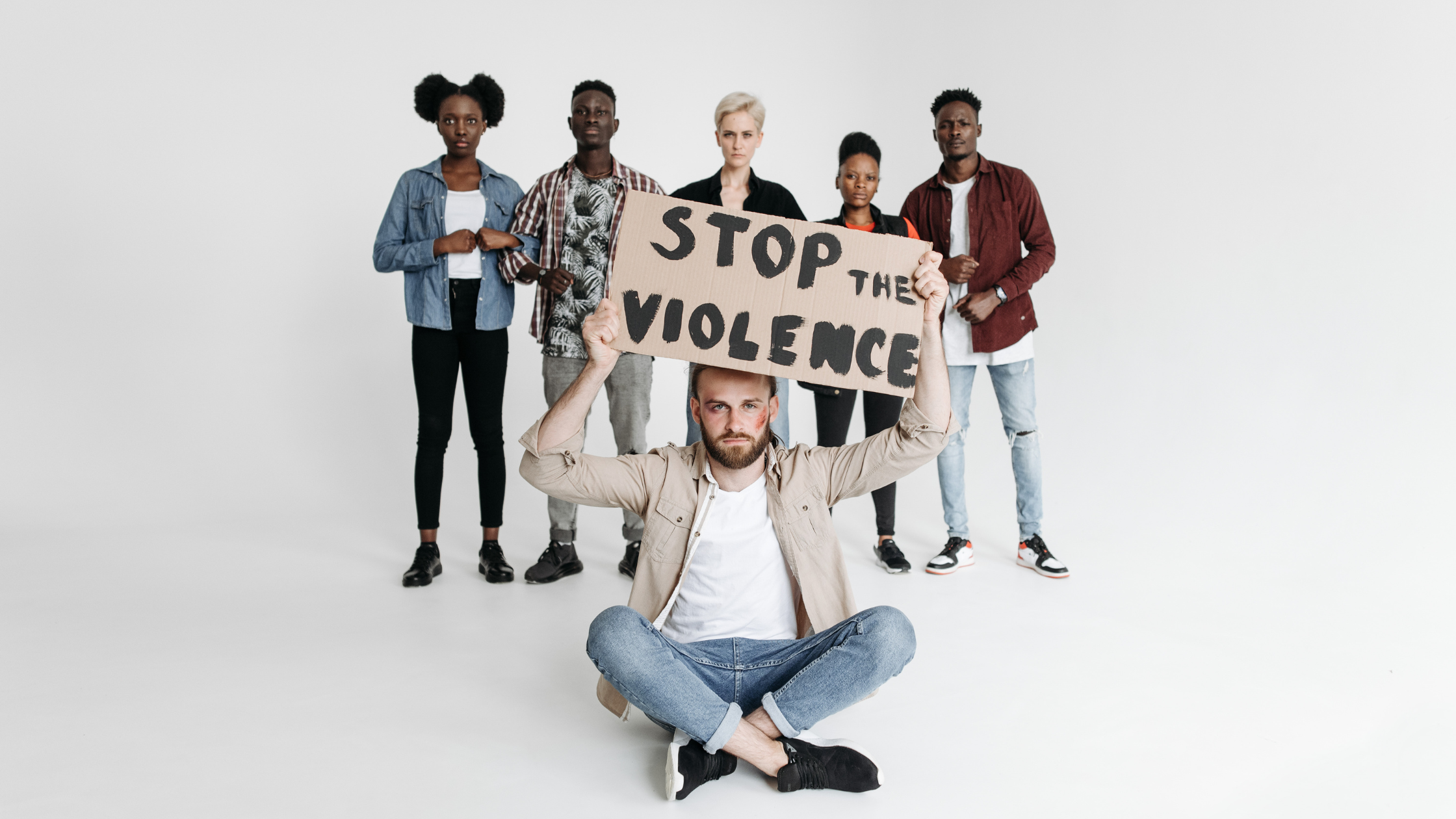Domestic Violence Is About More Than Gender: Understanding Power and Control Through an Intersectional Lens
When most people think of domestic violence, the image that comes to mind is a man abusing a woman. While this dynamic is real and pervasive, it's only part of the story. Domestic violence is not solely about gender. It's about power and control, Who has power within a relationship and how it's used is shaped by more than just gender identity.
As a Licensed Marriage and Family Therapist who researches, works with, and trains other therapists on working with domestic violence, I know that when talking about and assessing domestic violence there must be a deeper and more nuanced understanding of power and privilege before assumptions are made and labels are assigned. A systemic and Intersectional Black feminist lens are imperative to gaining that level of nuance and understanding.
What Is Intersectionality?
Intersectionality is a term coined by legal scholar Kimberlé Crenshaw to describe how different aspects of a person’s identity, such as race, gender, sexuality, class, disability, and immigration status, interact to create unique experiences of oppression or privilege.
A Black feminist approach to intersectionality acknowledges that gender-based violence cannot be fully understood without considering the other systems of power at play—like racism, ableism, homophobia, and classism. These overlapping identities influence how abuse is experienced, how survivors are believed (or not), and how perpetrators wield control.
Power and Control Go Beyond Gender
While patriarchy is a key structure that enables many forms of domestic violence, it is not the only one. Abusers use whatever tools are available to them in their social context to dominate and control their partners. These tools may include:
Racial privilege: A white partner may threaten to call the police on their Black or Brown partner, knowing how racial bias in policing puts them at greater risk.
Immigration status: A citizen partner may use threats of deportation to silence or control an undocumented spouse.
Financial power: A wealthier partner may control access to money, housing, or employment opportunities.
Ability status: An able-bodied person may manipulate or isolate a disabled partner by controlling access to medical care or mobility aids.
Heteronormativity: In LGBTQIA+ relationships, abusers may threaten to “out” their partner or use internalized stigma to keep them silent.
In each of these cases, the abuse is not solely about gender—it's about how multiple social identities and systemic inequalities create a complex web of power and vulnerability.
Why an Intersectional Approach Matters in Therapy
Traditional approaches to domestic violence often overlook or minimize these intersecting dynamics, leaving many survivors feeling unseen or unsupported. When therapy only focuses on gender, it can:
Fail to recognize how racism and classism shape the survivor’s ability to seek help.
Ignore how systems of power can be weaponized within queer or nonbinary relationships.
Miss the specific tactics used to isolate or manipulate someone with a disability.
By using an intersectional Black feminist lens, our therapists:
Center the whole person—not just their gender.
Name and validate the impact of racism, poverty, homophobia, and other systems of oppression.
Recognize and support diverse survivors, including those often erased from mainstream narratives—Black men, queer and trans folks, disabled people, immigrants, and others.
Help clients reclaim agency and rebuild a sense of safety and self-worth.
Healing Is Possible—No Matter Your Story
Whether you’re unsure if your relationship is abusive or you’ve survived years of control and fear, know this: you deserve a healthy relationship.
At Hold the Vision Therapy, we’re committed to creating a culturally sensative, nonjudgmental, inclusive, and trauma-informed space for all survivors. Our therapists understand that power, control, and violence don’t look the same for everyone—and that’s exactly why an intersectional approach is essential.
Let’s Talk
If you're navigating a relationship where control, fear, or harm are present—whether or not it fits the “typical” mold of domestic violence—we're here to help. You are not alone, and your experiences matter.




